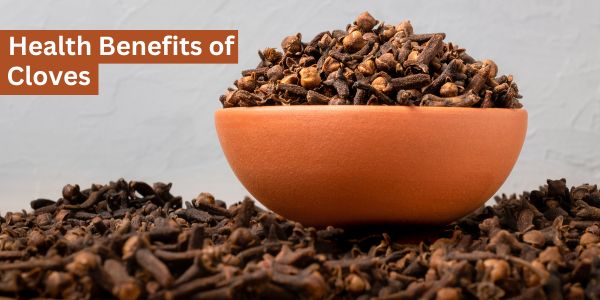Ginger Health Risks
Ginger. Yep, that spicy little root that’s been making waves for centuries, from Grandma’s kitchen remedies to your favorite health smoothies. It’s famous for everything from calming a churning tummy to kicking nausea to the curb like it’s last season’s fashion. You’d think it was a miracle root sent straight from the wellness gods. And honestly? It kind of is.

But, and there’s always a but, isn’t there? Ginger, like that charming character in a rom-com who seems perfect at first, has a few quirks you’ll want to know about before going all in. So, today we’re peeling back the layers and diving into the not-so-talked-about side of ginger. That’s right, when ginger might not be your best friend. We’re talking red flags, plot twists, and the times when it’s better to swipe left on this spicy root.
1. Bleeding Disorders

If you’ve got a bleeding disorder, ginger might be that overenthusiastic friend who means well but ends up making things worse. It’s a natural blood thinner, which is kind of like adding extra oil to an already slippery floor, not ideal when your blood’s already having a hard time clotting.
A 2010 study published in Thrombosis Research found that ginger extract significantly inhibited platelet aggregation in human blood samples, similar to the effect of aspirin
Ginger contains compounds like gingerol and culate that act like little anticoagulant agents. Meaning, they mess with your blood’s ability to clot. So if your body’s already on the struggle bus in that department, adding ginger could make it an express ride to Nosebleed City or Bruise Boulevard.
If this is you, don’t panic, but definitely talk to your healthcare provider before treating ginger like your new go-to spice. They’ll help you figure out if it’s safe based on your specific health blueprint.
2. Diabetes

You know how ginger has that reputation for balancing blood sugar levels? Sounds like a dream for anyone with diabetes, right? Well, yes and no. Ginger can lower blood sugar, but if you’re already managing your levels carefully, this little root might throw a wrench into your plans.
Sudden dips in blood sugar aren’t just annoying; they’re dangerous. Think dizziness, weakness, even passing out in the middle of the grocery aisle. And here’s the kicker: ginger also thins the blood. So if your diabetes already puts you at risk for poor circulation and slow healing, ginger might be piling on more problems than it’s solving.
A randomized double-blind placebo-controlled trial in 2015 published in Complementary Therapies in Medicine revealed that 2 grams of ginger daily significantly reduced fasting blood sugar and HbA1c in type 2 diabetics over 12 weeks.
And let’s not forget ginger’s effect on digestion. While it usually gets the gold star for easing tummy troubles, it can sometimes cause bloating or discomfort, especially in people whose digestion is already as sensitive as a rom-com protagonist after a breakup.
Bottom line? If you’re living with diabetes, ginger might not be the villain, but it’s definitely a character you need to keep an eye on. Talk to your doc and monitor how your body reacts. No surprises, no drama.
3. Gallbladder Issues

Here’s something you don’t hear every day: ginger and gallbladders don’t always get along. If your gallbladder’s been giving you the cold shoulder, maybe due to stones, inflammation, or just general dysfunction, ginger could stir up some trouble.
Why? Because ginger gets the bile flowing. And if your gallbladder is already overwhelmed or clogged up, this spicy nudge might feel more like a shove. Think discomfort, bloating, or even pain.
Also Read: 9 Natural Ways to Clean and Detoxify Your Lungs
Oh, and remember ginger’s blood-thinning skills? That can be risky when dealing with inflamed or compromised organs like the gallbladder, which are already vulnerable to complications.
According to research published in the World Journal of Gastroenterology, bile stimulation can exacerbate symptoms in those with gallstones or biliary dyskinesia, potentially triggering painful attacks.
If your gallbladder is acting up, it might be smarter to reach for something gentler. Herbal teas like chamomile or peppermint can still offer soothing vibes without poking the bear. And as always, have a quick chat with your doc before throwing ginger into the mix.
4. Heart Conditions

Ginger may be spicy, but it doesn’t always play nice with your ticker. While it can boost circulation and get the blood moving like it’s doing the cha-cha, that can spell trouble for people with pre-existing heart conditions.
We’re talking increased heart rate, fluctuating blood pressure, and interference with heart meds, especially if you’re already on blood thinners. Combine ginger with meds like warfarin or aspirin, and you could end up with overly thinned blood and a ticket to Bruiseville.
A study published in Cardiovascular Toxicology (2013) observed that high doses of ginger extract caused significant alterations in heart rhythms in animal models, indicating potential cardiac risk with unmonitored use.
It’s a bit like combining coffee and energy drinks; just because both give you a boost doesn’t mean they should go together. If your heart’s got history, ginger may need to take a back seat.
5. Medication Interactions

Let’s talk drug interactions. No, not the dramatic kind with mysterious side effects, but the subtle ones that can sneak up on you.
Ginger is powerful; it can lower blood pressure, thin blood, and affect blood sugar. If you’re on medications for clotting, high blood pressure, or diabetes, ginger might start playing DJ and remixing your meds without your permission.
A 2008 study from the American Journal of Health-System Pharmacy showed that ginger, in combination with anticoagulants like warfarin, can lead to enhanced anticoagulant effects, including prolonged prothrombin time and increased bleeding risk.
Especially with blood thinners like aspirin or warfarin, ginger can intensify their effects, increasing the risk of bleeding. For blood pressure and diabetes meds, ginger can amplify their impact, sometimes too much.
So, if you’re popping pills on the regular, check in with your doctor before adding ginger to the party. Better safe than in the ER, right?
6. Being Underweight

Trying to gain weight, but your metabolism is faster than a Marvel movie plot twist? Ginger might be quietly sabotaging your efforts.
Here’s the thing: ginger revs up digestion and metabolism. It increases digestive enzymes and may even curb your appetite. For most folks, that’s a good thing. But if you’re struggling to put on or maintain weight, that’s like adding a treadmill to your dinner plate.
A 2012 paper in Metabolism: Clinical and Experimental found that ginger increased thermogenesis (calorie burning) and reduced appetite when consumed with meals.
Plus, with faster digestion, your body might not absorb all the nutrients from your food. That’s like making a five-course meal and only getting to taste the appetizer. Not cool.
So if you’re underweight, it’s worth having a chat with a nutritionist before going gung-ho on ginger.
Also Read: 9 Prediabetes Warning Signs You Are Unaware Of
7. Pregnancy

Ginger’s often recommended for morning sickness and it works wonders for many moms-to-be. But here’s the twist: in high doses, ginger might increase the risk of miscarriage, particularly during that delicate first trimester.
It also thins the blood, which could pose problems during delivery. Nobody wants to deal with excessive bleeding when they’ve just pushed out a tiny human.
A meta-analysis published in Obstetrics & Gynecology (2014) confirmed ginger’s effectiveness in treating nausea in early pregnancy. However, it also warned of possible risks in higher doses due to ginger’s blood-thinning effects.
A clinical study in Phytotherapy Research (2005) observed that ginger reduced systolic and diastolic blood pressure in participants, with some reporting transient dizziness—particularly those with baseline hypotension.
Not to mention, ginger can stir up heartburn, something many pregnant women are already battling thanks to hormone changes and baby-related pressure on the stomach.
Long story short: if you’re expecting, ginger can still be on the menu, but keep portions modest and check in with your healthcare provider first. You’re eating for two, after all, so best to be extra safe.
8. Low Blood Pressure

If your blood pressure’s already low, ginger might send it down to basement levels. Compounds like gingerol act as vasodilators, meaning they widen your blood vessels and drop your pressure even more.
Feeling faint? Dizzy? Like you just walked off a tilt-a-whirl? That could be ginger pushing your numbers too low.
It also messes with neurotransmitters like serotonin and norepinephrine, great for mood, but tricky when it comes to maintaining steady blood pressure.
A clinical study in Phytotherapy Research (2005) observed that ginger reduced systolic and diastolic blood pressure in participants, with some reporting transient dizziness—particularly those with baseline hypotension.
So, if your numbers already run on the low side, ginger could be the culprit behind your wobbly mornings.
9. Surgery

Planning a surgery? First of all, we wish you a speedy recovery. Second, put the ginger down. Seriously.
Ginger’s blood-thinning properties can increase the risk of bleeding during and after surgery. And if you’re diabetic, it can also mess with your blood sugar levels under anesthesia, making it harder to manage things mid-operation.
A report from Anesthesia & Analgesia (2006) emphasized that patients consuming ginger supplements within 7 days of surgery showed prolonged bleeding times during procedures.
Surgeons usually recommend avoiding ginger in any form, tea, supplements, powder, at least a week before surgery. It’s not personal; it’s precautionary. Better to be safe now than deal with complications later.
Conclusion
Ginger is amazing, no doubt. But like any superhero, even it has its kryptonite moments. Whether you’re managing a health condition, on specific meds, or prepping for surgery, knowing when to hit pause on the ginger love can keep you safe and sound.
If any of the red flags we mentioned sound familiar, don’t self-diagnose, have a chat with your healthcare provider. With a little insight and smart choices, you can enjoy the spicy goodness of ginger without any of the side effects sneaking up on you.




